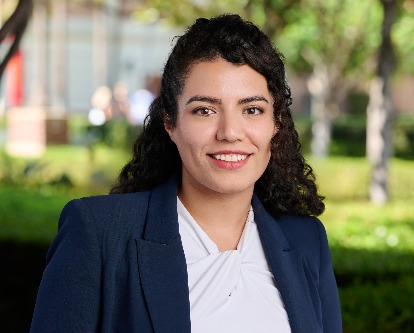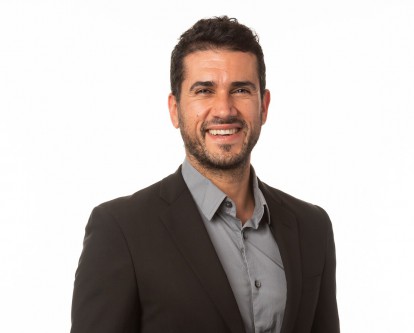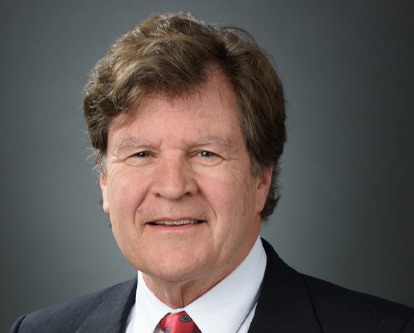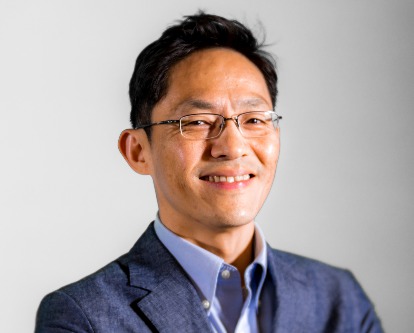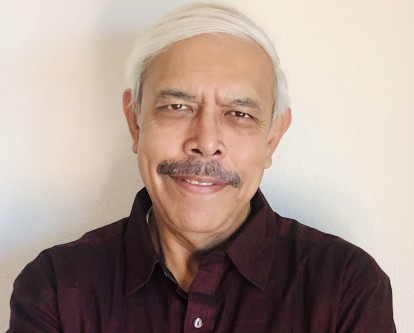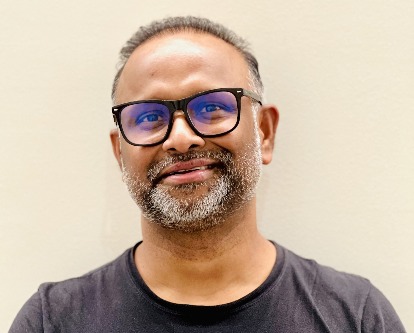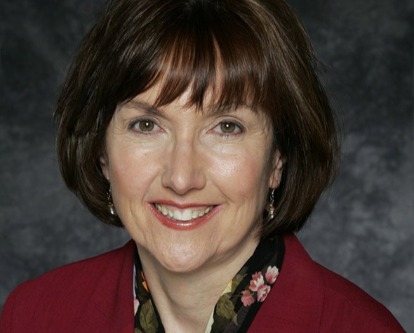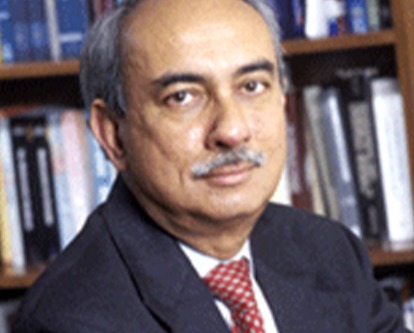
Faculty: Data Sciences and Operations
Data Sciences and Operations: Faculty and Research
Welcome to the DSO Faculty and Research webpage!
Our society faces wicked problems – global pandemic, climate change, extreme wealth inequity, and a ubiquity of opaque artificial intelligence algorithms that unintentionally increase ideological polarization and institutionalize discrimination. As we collectively search for solutions, emerging fields such as sustainable & smart supply chains, big-data learning inference, and evidence-driven public policy offer a path forward.
The DSO department at USC Marshall is a unique, vibrant place where one can find world experts, of national and international distinctions, in different areas of data science.
The DSO department consists of three groups – information systems, operations management, and statistics. Faculty collaborate within and across different groups and schools to:
i) Teach innovative, timely classes that prepare students to thrive in an increasingly data-intelligent world.
ii) Conduct original, impactful research that pushes the boundaries of human knowledge, through the lens of data science.
Importantly, faculty research spans both theoretical methodological breakthroughs in fundamental sciences and practical algorithmic strategies to help businesses, governments, and non-profits better navigate those modern wicked societal problems.
You can learn more about our faculty, their cutting-edge research, and their outstanding scholarly contributions and professional achievements on this page and their personal websites below.
— Jinchi Lv, Department Chair and Professor of Data Sciences and Operations

Full-Time Faculty
-
Yeganeh Alimohammadi
- Assistant Professor of Data Sciences and Operations
Yeganeh Alimohammadi is an Assistant Professor of Data Sciences and Operations at the USC Marshall School of Business. Her research develops algorithms and models for learning and decision-making under uncertainty, with applications to digital platforms, social networks, and epidemic forecasting.
-
Mohammed Alyakoob
- Assistant Professor of Data Sciences and Operations
Mohammed's research examines the economic and societal impact of digital marketplaces, with a focus on examining and measuring the role of traditional barriers, related to market structure, race, and expertise, among others, on limiting the equality of benefits derived from these platforms.
-
Arif Ansari
- Professor of Clinical Data Sciences and Operations
Arif Ansari is an expert in the area of data mining, business intelligence, data warehousing, and intelligent systems and technologies, a field in which he has fifteen years of research experience. He has published in IEEE Transactions on Systems and Man and Cybernetics.
-
Cosimo Arnesano
- Assistant Professor of Clinical Data Sciences and Operations
Cosimo Arnesano, Ph.D., MBA is a highly educated and experienced professional with a strong background in research services and business analytics implementation. With a Ph.D. in multiple fields and an MBA from the University of Southern California, Cosimo possesses a diverse skill set that includes fluorescence microscopy, biomedical engineering, Project/Operations Management, ML/AI, and more. His current interest focuses on how AI/ML can be applied to business processes, and their implications in the short and long run.
Courtesy + Joint Appointments
-
Dan O'Leary
- Ernst & Young Professor of Accounting
- Professor of Accounting
- Courtesy Appointment Professor of Data Sciences and Operations
Dan focuses on artificial intelligence, emerging technologies & text mining. Professor O’Leary is an Editor of The Accounting Review, in Accounting Information Systems and is former editor of IEEE Intelligent Systems and the Journal of Organizational Computing and Electronic Commerce. He was a Research Fulbright Scholar (France) in computer science and AI and in 2023, Professor O’Leary was Elected as a Senior Member of the Association for the Advancement of Artificial Intelligence. Awards: Paul Gray Award “Most Thought-Provoking Paper," 2017-top 100 IS researchers, JIS best paper for 2017-2019, AIS Distinguished Member, UiPath Visionary Educator in RPA, AIS Award for Innovation in Teaching, SET Outstanding Educator Award and listed among “Top 100000 Scientists” based on citations and publications for yearly and career contributions. Grants: iORB–Robotic Process Analysis, KPMG KARP Award for Data and Analytics–Non-Traditional Measures, NSA Grant-MKIDS and DHS grant on security.
-
Byoung-Do (BD) Kim
- Courtesy Appointment, Adjunct Professor of Data Sciences and Operations
BD joined USC in August 2019 to lead the Center for Advanced Research Computing. He earned his PhD in Aeronautics and Astronautics Engineering from Purdue University and possesses over 20 years of experience in advanced computing and big data fields. Prior to joining USC, BD spearheaded advanced research computing programs at esteemed R1 universities, such as Harvard Medical School and Virginia Tech. His research interests encompass large-scale parallel computational models and advanced system design for computation and data convergence models.
Part-Time + Adjunct Faculty
-
Daniel Altobello
- Adjunct Professor of Data Sciences and Operations
Daniel Altobello is theVice President of Product at InStride. In this role, Daniel sets the company’sproduct strategy and oversees product development, project management andanalytics. Previously, he served in product/operational leadership roles at DisneyParks, Paramount Pictures and Technicolor, helping to incubate, launch andscale innovative customer experiences. He also has co-founded two B2B2Cstart-up companies (Tiatros and K12Complete), both of which have products stillin use today. Daniel holds a bachelor’s degree in Management and Technologyfrom Rensselaer Polytechnic Institute and a certificate in Disruptive Strategyfrom Harvard Business School. Since 2019, he has appeared as a guest lecturerat the USC Marshall School of Business on topics such as ArtificialIntelligence and Physical-Digital Convergence.
-
Amy Altomare
- Adjunct Professor of Data Sciences and Operations
-
Joydeep Banerjee
- Adjunct Professor of Data Sciences and Operations
As a member of the Senior Technical Leadership for Multicloud Management at Red Hat, Joydeep’s focus is Observability, Far Edge & Scalability. Previously at The Walt Disney Studios, he partnered with the VP of Strategic Initiatives to drive the digital transformation of a key application, breaking it into micro services and migrating it to Cloud. In his many years at IBM, Joydeep has spear headed key projects and worked across many technologies in the areas of Distributed Computing, Streaming Analytics & J2EE. He is big believer in DevOps transformation, Agile Methodology & Design Thinking. He is interested in replicating the success of AI/ML in other fields to the area of Observability.
-
Kanad Basu
- Adjunct Professor of the Practice Data Sciences and Operations
Emeriti Faculty
-
Yehuda Bassok
- Professor Emeritus of Data Sciences and Operations
Yehuda Bassok's research interests include supply chain management, design and analysis of purchasing contracts, management of centralized and decentralized inventory systems, and bargaining within supply chains. His research has been published in many top journals, including Management Science and Operations Research. Prior to joining USC, he was on the faculty of Northwestern University and a visiting professor at the University of Washington. Professor Bassok served as chief system analyst of SES, a company that specialized in developing real time data collection and scheduling systems. Professor Bassok has received several teaching awards, including Marshall's Golden Apple Award in 2003.
-
Richard B. Chase
- Justin Dart Professor Emeritus of Data Sciences and Operations
Richard B. Chase received his Ph.D. from the University of California, Los Angeles in the field of Operations Management. He is widely known for his work in service design Richard has published papers in journals that include Management Science, Operations Research, Journal of Service Research, Journal of Operations Management, and Manufacturing & Service Operations Management.He is on the editorial boards of Manufacturing & Service Operations Management; an Editorial Advisory boards of Production and Operations Management Journal, Journal of Operations Management, and the Journal of Service Research,and the Cornell Quarterly Dick has consulted with a variety of organizations including IBM, MGM Grand, Westin Hotels, and Aloha Airlines.
-
Delores Ann Conway
- Associate Professor Emeritus of Data Sciences and Operations
Delores Conway is a statistician who studies real estate markets. Her research has been published in the Journal of Real Estate Finance and the Journal of Econometrics. Professor Conway is director of the Casden Real Estate Economics Forecast at the USC Lusk Center for Real Estate, and in 2005-06 and 2007-08 was selected as one of 50 "Women of Influence in Real Estate" by Real Estate Southern California Magazine.
-
Ravi Kumar
- Professor Emeritus of Data Sciences and Operations
From 1987 to 2013, he was Professor of Operations Management in Department of Information and Operations Management and served as Department Chairman, Vice Dean for International and Graduate Programs. From 2009-2011, he served as Distinguished Professor and Dean of College of Business at Korea Advanced Institute of Science and Technology (KAIST).From 2013-2018, he was Shaw Chair Professor at Nanyang Business School (NBS) in NTU, Singapore, where he served as Dean and Associate Provost. During his tenure, NBS was globally ranked by the Financial Times as # 10 for its EMBA and # 22 for its MBA and he helped raise over SG$35 million.Professor Kumar has received awards for teaching excellence at both University of Illinois and USC.Professor Kumar is author or co-author of more than 70 articles in international peer-reviewed academic journals. Global companies have funded his research as well as the National Science Foundation.
RESEARCH + PUBLICATIONS
RESEARCH + PUBLICATIONS
-
Abstract
In a non-negative profit game that possesses a Population Monotonic Allocation Scheme (PMAS), being a member of a larger coalition implies that your profit cannot decrease. In this paper, we refer to such games as PMAS profit games. As population monotonicity is a nice and desirable property that encourages formation of larger coalitions and implies stability of the grand coalition, we explore if this special feature of PMAS games can help in identifying additional stable coalition structures under different stability concepts in cooperative game---namely, core partitions, the von Neumann--Morgenstern (vNM) stable set, the largest consistent set, and the equilibrium process of coalition formation (EPCF)---and in developing relationships between coalition structures that are stable under these different stability concepts.
We first define two special classes of players for PMAS profit games---extreme and strong players---and use them to develop an algorithm for construction of stable (core) partitions. We also use extreme players to identify absorbing states for equilibrium processes of coalition formation with high level of farsightedness.
We then explore the impact of population monotonicity on the relationship between stable coalition structures under abovementioned stability concepts. While we are able to obtain some results related to stability of the grand coalition and to establish relationships between stable coalition structures under different stability notions that are consistent with the existing body of knowledge, population monotonicity in general does not add enough for strengthening of the existing results. However, we are able to show a couple of more general result that hold for arbitrary cooperative TU profit games. That is, we show that the members of vNM farsighted stable sets are core partitions, and that core partitions are members of a vNM stable sets. Moreover, we show that the members of vNM farsighted stable sets are EPCF-stable partitions.
Author[s]- Ana Meca
- Greys Sošić
PublicationAxioms, 11(11), 635Publication Date11.10.2022 -
AbstractAuthor[s]
- Bikram Karmarkar
- Peng Liu
- Gourab Mukherjee
- Hai Che
- Shantanu Dutta
PublicationJournal of Royal Statistical Society (JRSS), Series A, 185:102–133, 102–133Publication Date05.01.2022 -
Abstract
We study a special class of cooperative games with transferable utility (TU), called m-attribute games. Every player in an m-attribute game is endowed with a vector of attributes that can be combined in an additive fashion; that is, if players form a coalition, the attribute vector of this coalition is obtained by adding the attributes of its members. Another fundamental feature of m-attribute games is that their characteristic function is defined by a continuous attribute function—the value of a coalition depends only on evaluation of on the attribute vector possessed by the coalition, and not on the identity of coalition members. This class of games encompasses many well-known examples, such as queueing games and economic lot-sizing games. We believe that by studying attribute function and its properties, instead of specific examples of games, we are able to develop a common platform for studying different situations and obtain more general results with wider applicability. In this paper, we first show the relationship between nonemptiness of the core and identification of attribute prices that can be used to calculate core allocations. We then derive necessary and sufficient conditions under which every m-attribute game embedded in attribute function has a nonempty core, and a set of necessary and sufficient conditions that should satisfy for the embedded game to be convex. We also develop several sufficient conditions for nonemptiness of the core of m-attribute games, which are easier to check, and show how to find a core allocation when these conditions hold. Finally, we establish natural connections between TU games and m-attribute games.
Author[s]- Ulas Ozen
- Marco Slikker
- Greys Sošić
PublicationPOMS, 31(4), 1770-1787Publication Date04.01.2022
FACULTY POSITIONS
FACULTY POSITIONS
Open faculty positions at the USC Marshall Data Science and Operations Department are posted HERE.
